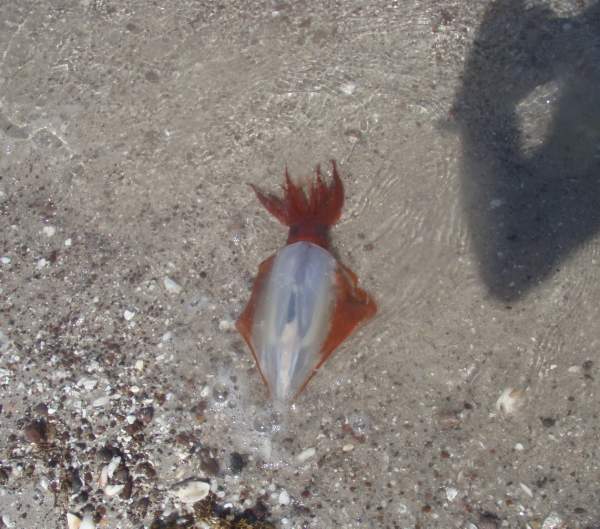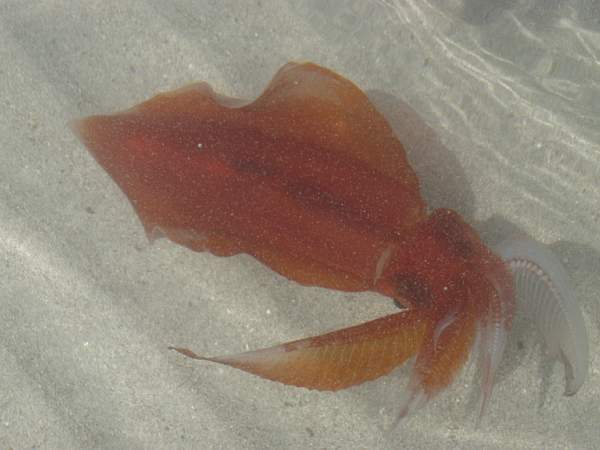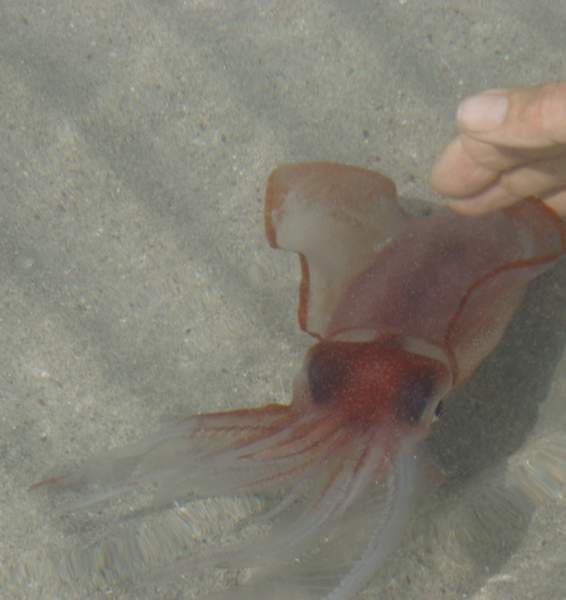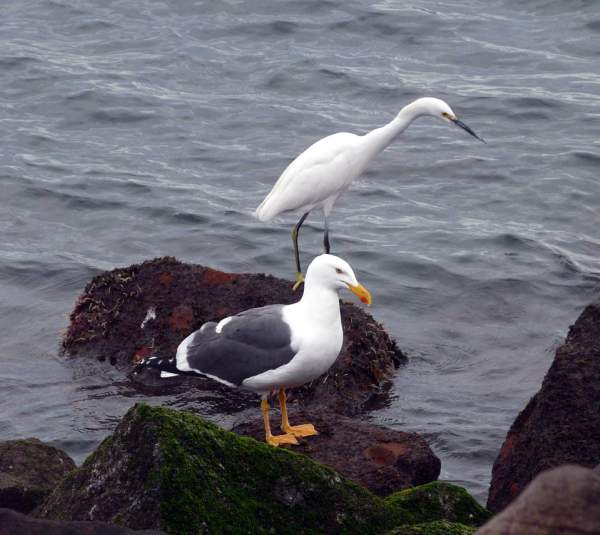Published in the Ocean Watch column, Honolulu Star-Advertiser © Susan Scott
June 15, 2009
“What one thing did you like best?” Craig asked me at the end of our Sea of Cortez adventure. He always asks me that after a trip and I enjoy recalling, considering, then making my choice.
This time it was hard to come up with one event, because nearly every day something happened to amaze me. After some thinking, though, I decided: My favorite was the incident of the gull and the suicidal squid.
Our Honu was the only sailboat in the anchorage that morning and we had its glorious beach all to ourselves. The water was so calm and clear and the desert sun so bright, even tiny fish cast shadows on the sand beneath them.
Strolling along, I spotted a narrow, leaf-like thing near the surface, and as I pointed it out, the leaf shot toward shore. We watched wide-eyed as a brick-red, 8-inch-long squid zoomed to the waterline, and in a burst of energy, beached itself at our feet.
The creature wiggled back into the water, flashed pearly green and blue colors, swam in circles and then shot back onto the beach.

“It looks healthy,” I said. “But it’s trying to commit suicide.”
“Maybe its 90 years old in squid years and it’s time to go,” Craig said. In human years, that would be only a year or two, because squids, like their octopus relatives, are short-lived. They mature quickly, reproduce, then die.
Since the sea is famous for Humboldt (aka jumbo) squid, I wondered if this one might be a disoriented baby.
Once again, our squid wiggled backward to launch itself and then swam slowly along the shoreline in about a foot of water.
I’ve read about squids’ swimming methods, but this was the first time I’d seen one in action. When going slow, the creature flapped the long narrow fins along each side of its smooth body and it moved tail first. But when I leaned down to see more clearly, it shot water from its siphon and jetted head first in a burst of speed.

Squid siphons can bend, allowing the creatures to go either forward or backward. This, with their two fins, plus eight arms that steer, make squids exceptionally maneuverable.
And fast. Among marine invertebrates, squids are the speediest, swimming from 25 to 40 mph, depending on the species.

When I reached down, the creature let me touch its muscular body. A moment later, it shot out a cloud of black ink and swam around in jerky circles.
This, I thought, is like having my own pet squid.
And then a yellow-footed gull, a species endemic to the area, came strutting down the beach to investigate. These are hefty gulls, but the squid looked too big for the bird to eat. Still, the gull, turning its head one way, then the other, watched the hovering squid with great interest.

“Get the camera out,” I whispered, hoping to get a shot of bird and squid together. But before Craig could reach into his pocket, in one lightning move, that gull ate my squid.
The speed and size of this meal astonished us, but the self-satisfied bird stared up at us as if to say, “What? That squid was asking for it.”
It was. Suicide mission accomplished.
After I picked this event as my favorite, I asked Craig to choose his. “It’s hard to beat the suicidal squid,” he said.
It is, although I’m sure there will be more to choose from in the future. I’m home, but the boat is still there.